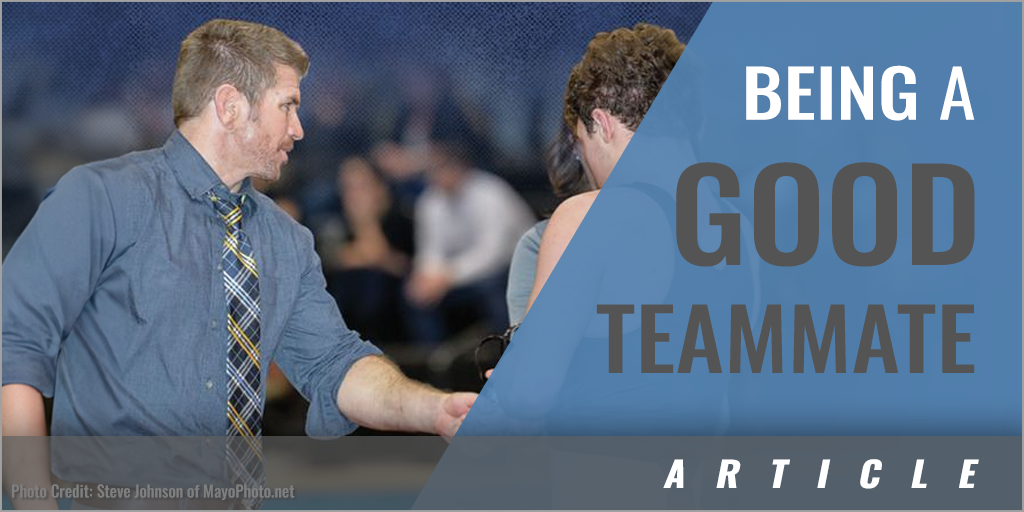|
By: John Klessinger - South River High School (MD) Originally Published in: A Coach's Manual Provided by: Championship Productions "Great players and great teams want to be driven. They want to be pushed to the edge. They don't want to be cheated. Ordinary players and average teams want it to be easy." -Pat Riley, 5X NBA Champion Basketball Coach, Los Angeles Lakers and Miami Heat What is being a good teammate? For some, a good teammate is someone who will help them when they are down. For others, a good teammate is a cheerleader offering encouragement from the sideline and practice. To me, a good teammate "sets the example" by doing the right things first in practice, during the off-season, and at home and in the community. When they do that, it is their responsibility to hold their teammates accountable each day. Until a player holds themself to a high standard and "walks the walk," they are not a good teammate. I didn't always think this way and felt a good teammate was a good practice partner. A good teammate was a cheerleader and supported you. Both are aspects of being a positive influence on your team. In 2010, I got a job with a leadership and team-building company called The Program. Erik Kapitulik started The Program. Erik was a former Marine Reconnaissance Officer, Naval Academy graduate, and a high-level lacrosse player. The program's slogan is "we build better leaders and more cohesive teams." Erik, more commonly known as "Kap," is a no-nonsense individual. The program bases its structure and principles on Kap's experience as an officer in the military. Many of my beliefs on leadership and team-building have come from him. I have seen his work transform teams and organizations. I have adapted what I've learned and applied it to my wrestling program from working with The Program. How do we teach our players to be good teammates? Being a good teammate, like mindset and mental toughness, is a learned skill. Your players need instruction, practice, and repetition. A coach needs to regularly create drills and situations that promote being a good teammate. For the sake of redundancy, you have to give your players opportunities to learn the skill. Nearly every day, I incorporate some team accountability activity. I give them standards and rules to follow. I tell them upfront about how things should look, the standards, and the requirements for completing the task. Furthermore, I am clear about what will happen if they do not complete the task successfully. The success or failure lies in them. If they do what they are supposed to do - be a good teammate and hold each other accountable - they will accomplish the task without penalty. I will let them fail at first, hammering on them the standards. "Player A is not touching their chest to the ground. Player B did not touch the line." I will not guide them. I expect them not to get it right. I will only say, "no good," and we will repeat the activity. Almost every time, the players' emotions will quickly escalate. They become overwhelmed, and the event also becomes a lesson in adversity, perseverance, and performing under pressure. They begin yelling and blaming each other. When it no longer becomes a learning experience, I will stop them and talk to them about what a good teammate does and why it is critical. Then, I will reiterate the standards and tell them all they have to do is hold their teammates accountable to the standards. After the activity, I let them know they did an excellent job and emphasize the need to be challenged and held accountable when things do not go the way they should. Side note- from a mindset and mental toughness standpoint, I want to push them close to their breaking point and get them to help each other make it through. Repeatedly doing this with your athletes and then positively reinforcing their performance |






